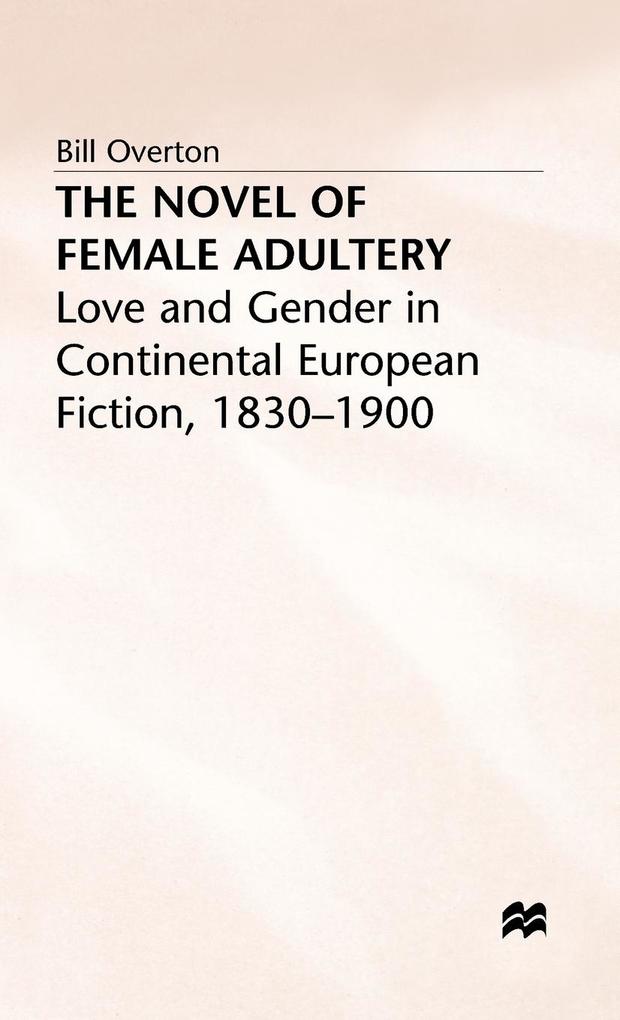
Zustellung: Sa, 26.07. - Mi, 30.07.
Versand in 7 Tagen
VersandkostenfreiBestellen & in Filiale abholen:
The novel of adultery is a nineteenth-century form about the experience of women, produced almost exclusively by men. Bill Overton's study is the first to address the gender implications of this form, and the first to write its history. The opening chapter defines the terms 'adultery' and 'novel of adultery', and discusses how the form arose in Continental Europe, but failed to appear in Britain. Successive chapters deal with its development in France, and with examples from Russia, Denmark, Germany, Spain and Portugal.
Inhaltsverzeichnis
Preface - Acknowledgements - Chronology - Editions Used and References - Female Adultery, Ideology and Nineteenth-Century Fiction - Towards the Novel of Female Adultery: Chateaubriand, Constant, Musset, Merimee - The Formation of the Novel of Female Adultery: Balzac - From Old Paradigms to New: Champfleury, Feydeau, Flaubert - Alternatives: George Sand and Others - What Is to Be Done? Chernyshevsky, Tolstoy, Chekhov - Protestant Fiction of Adultery: Blicher, Jacobsen, Fontane - Church and State: Eca de Queiros, Alas, Galdos - Notes - Bibliography - Index
Produktdetails
Erscheinungsdatum
27. November 1996
Sprache
englisch
Auflage
1996 edition
Seitenanzahl
284
Autor/Autorin
Bill Overton
Verlag/Hersteller
Produktart
gebunden
Abbildungen
XIII, 284 p.
Gewicht
526 g
Größe (L/B/H)
216/140/21 mm
ISBN
9780333614518
Entdecken Sie mehr
Bewertungen
0 Bewertungen
Es wurden noch keine Bewertungen abgegeben. Schreiben Sie die erste Bewertung zu "The Novel of Female Adultery" und helfen Sie damit anderen bei der Kaufentscheidung.










